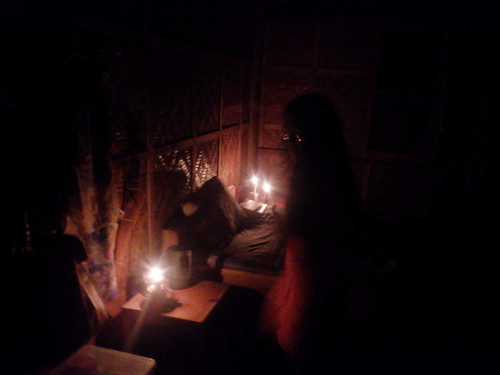
Reflections on the Experience
----------

A Positive Effect on the Garden:
In several ways the typhoon has helped improve our garden environment.
The damage to trees (mostly tree tops) allows more sunlight into the garden. The fallen debris will, in time, provides an excellent compost when rotted down. Large pieces of wood take much longer -but the benefits of leaf mold comes fairly quickly. Unripe fruit and seeds blown to the ground also provide excellent forage for chickens and ducks. Edible leaves and small branches also become useful forage for the pigs.
The typhoon has trimmed more foliage in one night than I could trim in a year of hard work
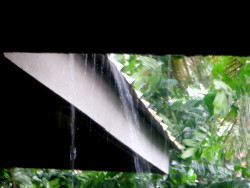
The Dialectic of Rain:
Not only is recovery work more difficult when it rains -the weather also affects the growth rate of newly sown seeds and other plants. Neither too little or too much rain is good for growth (depending on the plant).
Paradoxically, the less rain there is the greater is the animals need for water. To a certain extent this is true of us too. The hotter and dryer the weather, the more one sweats and the more one needs to wash.
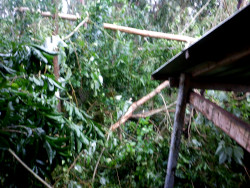
Some Psychological Effects:
Obviously, any situation where survival becomes more difficult (and/or dangerous) than normal is going to cause stress.
Typhoon Rai/Odette provided several sources of stress -both during and after the storm. However, gradually, we seemed to be able to solve the basic problems that were the source of stress. In turn, this gives a sense of achievement.
It is very satisfying to see how ones work is rewarded as day to day the chaos is gradually pushed back and areas of normality start to be recreated.
The more problems one manages to solve, the more experience one has in general problems solving -and the easier it becomes to solve other problems.
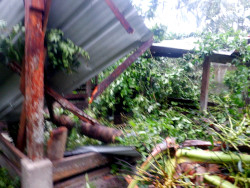
Articulation:
Articulation is an important concept in linguistics.
However, it is also a key concept in cognition: Understanding the "Articulation Points" -where there are points of connection (joints) permitting movement in some direction or other. One needs to understand where the joints are, in which direction, the possible direction and distance permitted by the joint plus the amount of effort required to move in any given direction for any given distance.
Understanding articulation means that one understands how a system of connecting elements can be changed, modified or reconfigured.
If the system is not entirely understood, then alternative configurations (Simulations) can then be experimentally tested and the optimal solution selected. If the system is understood, then optimal solutions can be configured.
It is important to understand how any new configuration can be constructed from any existing configuration. There is little point in having an ideal solution to a problem -if one is not able to reconfigure the old situation to fit the new solution.
Thinking in terms of "potential changes" -while also understanding the consequences of those changes -will make it easier to find dynamic solutions to dynamic problems -more than than if one is dependent on more static conceptual systems, such as "proof of truth" and other "logical" constructs.
An understanding of articulation provides a set of dynamic conceptual processes which focus more on the "potential" of a system more than its "truth value".
However, ultimately, the truth value of an articulated system is the possibility (or not) of it being able to be configured in a functionally desirable way -and not in terms of question of its existence. The important question is: Can the system "Do" this -and not does the system exist (or not)?
If in theory one knows that a certain configuration will solve a given problem -then that configuration can often be called into existence if it does not already exist.
It would surely be foolish to reject a potential solution to a problem -simply because that solution does not currently exist. If the required configuration does not exist, then -if one has the specifications it can presumably be fairly easily invented -provided the solution is possible.
The problem of repairing a damaged system (for example a house or local environment wrecked by some natural or artificial disaster) is (in theoretical terms) simply a matter of transforming the current configuration of the system to a more preferred (more optimal) configuration
Meaning as Articulation:
Over the recent weeks since the typhoon I've had many opportunities to reflect upon the "Meaning" of our garden (and our life here).
These contemplations were not in the form of metaphysical, speculation on the symbolic "meaning" of the disaster (questioning why it had happened, why it had happened to us -and why was life so cruel or unfair, etc.).
Nor was I interested in psychological and perhaps economic questions such as: The role of the disater in satisfying certain spiritual, or even physical, needs.
What interested me was simply the practical, functional, problem of trying to articulate the various problems inherent in the process of first surviving and then recovering from the effects of the disaster.
-How could one transmute the current situation into a more desirable future state of existence?
-Where should I start?
-What needed to be done and in what order?
-What individual techniques and technologies (tools) were required for each new step in the process?
Which tasks were essential -requiring immediate action -and which jobs could be safely left until later?
Should one clear the garden area by area -or perhaps concentrate on the heavy jobs first?
How does one articulate the problem in terms of the most efficient use of available resources (including my personal energy levels)?
How can one best utilize fallen leaves, small branches and large logs, for example?
Working mostly alone, how can one best cut up and physically move large logs to their intended destination?
Which trees should be further trimmed -to aid their recovery and to provide more light -and which can best be left to recover by themselves?
When should one try to restore the original garden structure (as much as possible) -and when should one redesign the area?
How and when should the area be replanted?
It seemed to me that "articulating" the problems on a practical level was far more important than trying to find metaphysical answers to apparently irrelevant (philosophical) questions.
-----
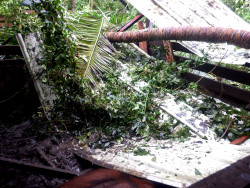
The Nature of "Knowledge":
How does one know what one knows?
Is it because one has learned from personal experience -or is it because one has been "taught" (or told) something?
Is the "knowledge" an understanding of "process" (of how things interact and change) -or is it based largely on a description of supposedly static objects (the way things are supposed to be)?
Is ones "knowledge" pragmatically based (how to discover and learn new things) -or is it based largely on "moral" assumptions (separating "good" from "bad")?
Is one prepared to face the exciting challenge of testing ones "knowledge" in the practical world of daily existence -or is ones own belief system so important that it cannot be questioned?
Can one use one's "knowledge' to change the conditions under which one lives -or does ones belief system condemn one to a life with no prospect of change (for better or worse)?
Is life an exciting challenge -or is it something that one needs to be protected from?
-----
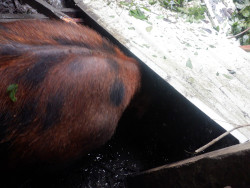
The Problem with Intellectuals:
Almost by definition -intellectuals believe that the "Intellect" (as an abstract concept - but also particularly their own) is the "Lord and Master of All Things": The mind is the master Architect, Builder and Guide -and all other aspects of human life should bow down before the genius of the mind.
True, intellectuals often differ in opinion regarding several (often key issues) -but they also believe that such disputes can be solved by logical discussion. So they live in a world of ideas and opinions -which are often inherited from other intellectuals -either freely or via the "Education: system. Although, the intellectual's mind reigns supreme -it is often the minds of others that form and shape their own minds.
They don't seem to understand the world of "facts", "information" and "knowledge" regarding the pragmatically tested physical world that most people live in. It often seems that for intellectuals "ideas" transcend "facts" -that one does not need to look to see how things actually work in the physical world -one's "belief" regarding how it works is believed to be sufficient.
Given the problem of how to feed a pig, an intellectual will not bother to study the pig's behaviour, or even anatomy, in order to discover its nutritional needs. A true intellectual will look for "ideas" on how to feed a pig. However, often these "ideas" will not solve the problem (even if they are, in themselves, not erroneous): Such "ideas" need to be implemented -and there may well be (specific, situation based) reasons why these "ideas" will not work. One might think, for example, that buying feeds is a good solution -but if the shop is closed, or is sold out, then the otherwise good idea has become useless. One needs to modify the "idea" to fit the actual circumstances prevalent at that specific time, in that specific place.
The practical way to feed a pig is to look around and see what edible material is available, in the present situation. The pig can then be presented with a selection of the available material -and one can see which substances the pig prefers to eat. Sometimes one might try experimenting with the forage offered -sometimes one might be surprised to discover that the pig enjoys things that one might not have thought about. Sometimes on might make mistakes and offer something that upsets the pig -but one now knows this -and can avoid it in future.
In such a way, each individual pig is able to determine the its own favoured diet.... It is the pig that then decides what to fed -and not ones "idea" of what the pig (all pigs) should be fed.
When one works pragmatically, there seems little point to questions such as "Why am I suffering so?" -or "Why is life so difficult?": The only important question for a pragmatist is "How can I best survive these difficult conditions?".
-----
Structure and meaning:
For many people, their experiences are so powerful that they cannot imaging its possible for things to be different to the way they appear: The "experiences" seem "real".
However, other people may have had different experiences -or perhaps experience the same things differently -and so different people might live in a different "reality" -even though they are co-existent in the same physical space and experience the same events in that space.
Consequently, we need to find way to understand and conceptually articulate how to deal effectively and fairly with alternative beliefs, interpretations and experiences.
-------------------
---------